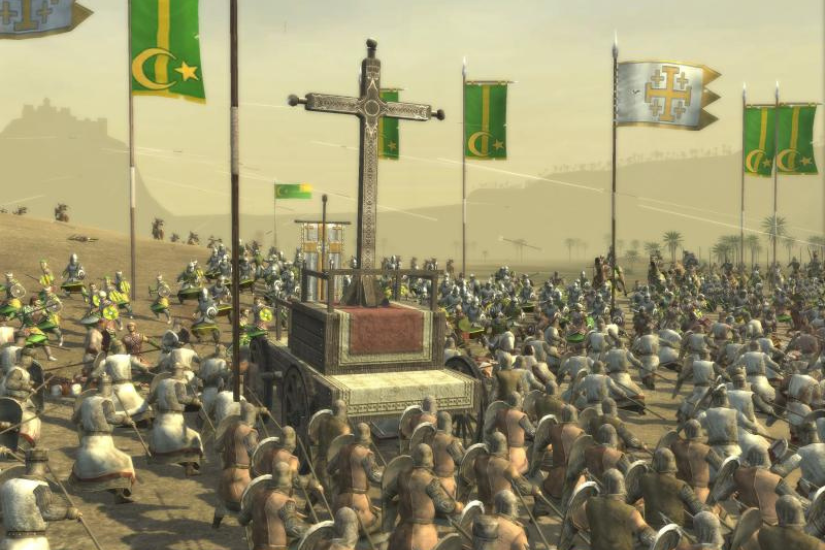
Video gaming is now a days the most profitable sector within the entertainment industry. While in 2022, the revenue of the industry worldwide amounted to 208,6 billion USD, by 2027, the industry’s profits might reach 298,2 billion USD. Many of the most popular video game franchises are set in historical or historically-inspired scenarios, with the Middle Ages being the most popular historical period simulated in video games. This means that an increasing number of people approach this historical period through virtual simulations. However, as various authors have pointed out, turning the past into a virtual ludic space carries with it a series of epistemological and historiographical implications that are worth considering, such as the reproduction of teleological and apparently “objective” narratives about the past that camouflage the role of the game developer.
The crusdes, with their combination of religion and violence, are among the most complicated topics to simulate in video gaming. Being a mid-polemical historical topic due to their use in contemporary political discourse, games that simulate the crusades invite the player to participate in their violence in a way that that would be unthinkable with other polemical topics, such as slavery and the Holocaust. With this in mind, this lecture has two objectives. First, it will offer an introduction to concepts and methodologies used in historical game studies and explain some of the implications of turning the past into a virtual ludic space. Second, it will exemplify this with my own research on the case of the crusades in gaming and present some initial conclusions to my research.
Juan Manuel Rubio Arevalo studied history at Universidad de Los Andes in Bogota, Colombia. He has a master's degree in history from the same university and an MA in medieval studies from CEU. He is currently a PhD candidate in medieval studies at CEU and his research deals with the way in which contemporary video games remediate medieval history in general and the crusades in particular. The dissertation explores the epistemological implications around the simulation of the crusades in digital spaces from a ludonarrative approach (meaning the intersection between historical narrative and play), and the pedagogical opportunities and limitations that this medium offers. Other of his research interests include the history of the crusades, Church history, and Biblical exegesis.